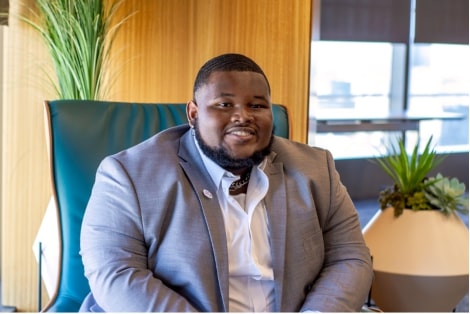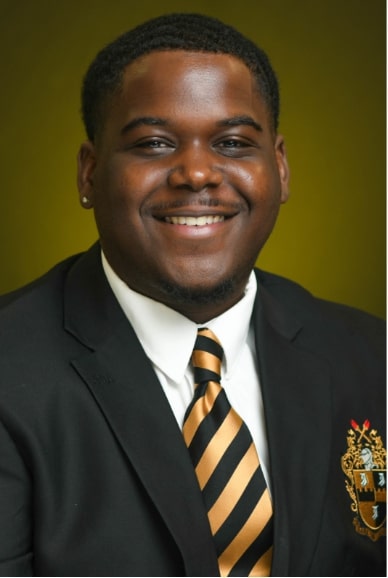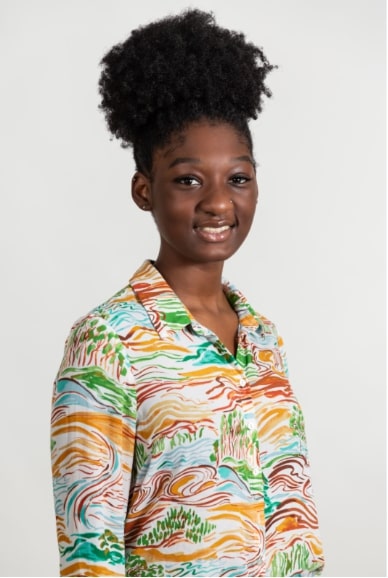Find Out What Recent High School Grads Wish all Teachers Knew
As the back-to-school season continues in full swing, we asked our XQ summer interns to reflect…

As the back-to-school season continues in full swing, we asked our XQ summer interns to reflect on their high school experiences and tell us three things they really want teachers to know. Here’s what they had to say
Ava

Crosstown High School ‘22
Northeastern University ‘26
Rising Freshman
Psychology Major
Memphis, Tennesse
1. Encourage curiosity! Give students the space to be able to ask questions about themselves and the world around them. If they feel shut down and discouraged, they can’t create those connections between the content and themselves.
2. Open communication. Talk with your students about what they want to get out of the class, and allow communication to flow when talking about class culture.
3. We do recognize your hard work. As much as it can feel like we just brush over content and teaching methods that you work so hard to nail down, we really do appreciate that effort and ideation you put into making our educational experience authentic and affirming.
Bryce

Lutcher High School ‘21
Nicholls State University ’24
Rising Junior, Secondary Education Major
Lutcher, Louisiana
1. Relationships must be built with your students in order to be an effective educator. Know your students!
2. Your students should have real input on the things you teach. Allow their input into lesson plans and classroom practices.
3. BE HELPFUL, NOT A HASSLE! Aid and support your students on everything.
Jazzleigh

Cambridge School of Weston ‘2019
Howard University ’24, Rising Junior Sociology and Secondary Education Major
Boston, Massachusetts
1. Teachers should know that the work they do does not go unnoticed. It might not be said at the moment, but teachers are most appreciated. The impact one teacher has on a student can shift that student’s plans entirely. Teachers might not know it at the time, but they have the chance to spark a light in our future leaders.
2. Remember that for some students, if not most, school is an escape from the outside world. Some students look to school to be a safe haven—so if you can make it that, please do.
3. Teach Black history outside of February. It is American history.
Madison

St. Joseph’s Academy
Howard University, ‘24
Rising Junior, International
Business Major
Baton Rouge, Louisiana
1. Something I want teachers to know is that when dealing with students of color or from marginalized communities, it’s important to not only know the history of the students with whom they are engaging, but also figure out a way to incorporate that knowledge into their teaching styles so that students can see themselves in the lessons they are learning.
2. Teachers should know the importance of relatability. Oftentimes students see teachers as people who are solely confined to the classroom space, and there is a huge disconnect. I think through fostering those trusting relationships, students and teachers can bond on the most basic level.
3. One thing teachers should know is that every student cares about their future and has the potential to succeed, whether or not they see it in themselves. It is up to teachers to be able to see the potential in all students and continue to be their advocates even when they can’t advocate for themselves.
Martavious

Peabody Magnet High School
Grambling State University, ‘24
Rising Junior, Mass Communications and Marketing Major
Alexandria, Louisiana
1. Teachers should understand that building relationships with the student is a major component when creating a good learning environment. This allows for the student to feel understood and connected to the educator to make for a smoother problem-solving solution.
2. Mental health talks should be included in the classroom. I believe it is important to have that open dialogue to connect each student with one another. I have learned that students can relate more to other students through casual conversation.
3. Remember that the classroom needs to be equitable. That every student may need a different approach for a successful learning environment. If a teacher is able to cater to student learning needs, we can increase more leaders for tomorrow.
Tariah

St. Georges Technical High School ‘21
Howard University ‘25
Rising Sophomore, Political Science Major
Wilmington, Delaware
1. Teachers should understand that proximity is key. Proximity to students, their experiences, etc all contribute to a safe and equitable classroom environment. If teachers make the effort to cultivate proximate and genuine relationships with students, students are more likely to engage and be a part of their learning experience.
2. Be aware that every student does not share the same experience, and it is extremely important to actively work toward understanding each individual student, and interactions with those students. Every student learns in different ways, and as an educator, it is important to be adaptive to the various learning styles that come through your classroom.
3. A culturally responsive classroom is a more equitable and engaging classroom. Students are more likely to engage with content and classroom materials that they can connect with and to. It is important to be aware of how inclusive your content is, and how it adheres to a diverse population of students.
Veronica

Elizabethton High School ‘21
East Tennessee State University ‘25
Rising Sophomore, Computer Science Major
Elizabethton, Tennessee
1. Bad behavior should be understood before punished. Start breeding a culture of understanding and uplifting, as opposed to shunning and shutting away “problem children.” They are often the ones that need the most love, support, and attention.
2. We are going through so much more than just your assignments, even more than other class assignments, some of us deal with even more than jobs. We have family, social lives, religion, siblings, self-discovery journeys, sports, housing issues, food insecurity, everything. So much more. If I am not paying attention when I normally would, please be patient.
3. Respect is not something you can force students to give. Sometimes you are really good at identifying when there are academic pressures on us, but we students aren’t as good at picking up on those same pressures on teachers. Just as we want you to understand us and our struggles, don’t be afraid to be transparent (within what you’re allowed to be of course) with us so that we can also support you. Break down the dynamic of being “the one that gives orders” and help us create a community in the classroom where we understand each other and have open heart-to-heart connections, so that respect comes naturally from both directions.
XQ X-Tra:
What do you wish your teachers knew? Tweet and be sure to tag us @xqamerica and add #rethinkhighschool!









